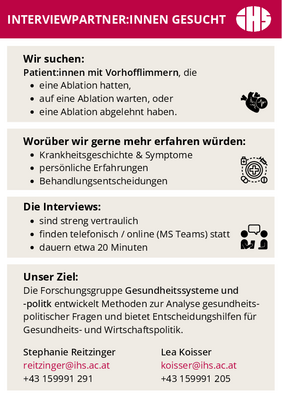Atrial Fibrillation (AF) is the most common cardiac arrhythmia. Since AF is progressive, the longer one has it, the harder it is to treat, and the risks of stroke, dementia and heart failure increase. The most effective treatment is catheter ablation therapy, a procedure that strategically destroys tissue to restrict propagation of electrical waves. However, approaches are currently generic, ignoring patient variability in atrial conduction system, and AF often recurs. We aim to develop a personalised approach based on computer modelling, to use digital twins to plan AF ablation to prevent recurrence. Preoperative measurements, imaging (MRI/CT) and the ECG help build the most likely digital twin of the patient’s conduction system. Thus a targeted ablation becomes possible without measurements obtained during a (lengthy) interventional procedure. These possible digital twins are further narrowed down during the ablation procedure.
IHS leads Work Package 4 (Health Economics and Implementation Support). First, the aim of this work package is to conduct an economic analysis evaluating the costs and benefits arising from early preventative and longer-lasting treatment, reduced duration and procedural risks of interventions. This entails the development of a tailor-made model to evaluate the differences between standard and personalised therapeutic strategies in order to support decision makers. Secondly, the IHS conducts a survey of patients with atrial fibrillation about their experiences with diagnosis and treatment, particularly ablation. The focus is on individual perceptions and treatment decisions, with a strong emphasis on innovations. To develop the survey, interviews are conducted with patients and additional stakeholders. The aim is to highlight patients' views and how they perceive innovations in treatment options in order to better respond to their needs.

